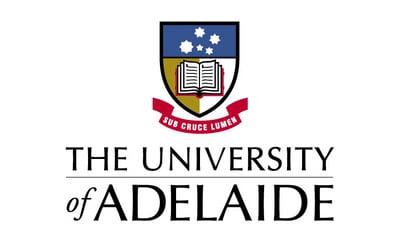Lumen Wirltuti:Warltati 2025 - Flipbook - Page 6

Research
A major
leap forward
Sometimes the kindest thing we
can do for animals under our care
is to leave them alone.
“I was very excited,” she says. “I’ve worked with painted dogs
for quite a long time, so I have quite a connection with them.
Seeing them be able to interact in that more natural way is the first
time I’ve seen them do that, and it really did make me very happy
for the dogs.”
This is particularly true for some
of the animals in our zoos where
the future of wildlife conservation
is going hi-tech.
Nearby, Monarto’s cheetahs are being treated to a different
style of hunt. Above them, a drone equipped with first person
view cameras is being deployed to enable real-time monitoring
and behavioural analysis. Separately, a drone has also been
modified to carry a payload of food.
“The introduction of drones triggered fascinating behavioural
changes in cheetahs,” research leader Dr Xin Yuan (Vernon) says.
“They exhibited an increased focus on aerial movement, tracking
the drones with sharp attentiveness and adapting their behaviours
dynamically. Unlike their typical routine in enclosed areas, where
they often remain sedentary, the presence of drones encouraged
more frequent movement, exploratory behaviours, and simulated
stalking responses. Some cheetahs even attempted sudden bursts
of speed, mirroring their natural hunting reflexes in the wild.”
By Mark Douglas
The dog pack circles, tracking its prey. The leader instinctively
takes charge, bringing the pack to order.
Ahead of them an autonomous rover – an advanced remotely
controlled vehicle similar to those used to explore off-planet –
is dragging a feral goat carcass. Its movements are designed to
simulate prey, and for the first time observers are noting these
African painted dogs tracking their food. Usually, dinner just
appears. This time they need to hunt it down.
Vernon was awarded his PhD in Electrical and Electronic
Engineering at the University of Adelaide in 2021 following his
Bachelor Degree of Engineering with Honours in 2015.
He is now a Senior Research Associate in the School of
Electrical and Mechanical Engineering at the University. He also
teaches computer science and engineering at our city campus
and at Haide College – a part of Ocean University of China, one
of our University’s educational partners in China. His research
has a strong focus on artificial general intelligence, cognitive
decision-making, robotics and autonomous control systems.
In the wild these dogs would be roaming the savannahs and
lightly wooded areas of Africa, as they and their ancestors have
done for 40 million years. Now they are among the continent’s
most endangered species.
They are predators, hunting together to pursue their prey at
speeds of up to 66km/h for up to an hour. Nearly 80% of hunts
end in a kill – lions can manage only 30%.
Vernon’s work with Zoos SA is helping assess animal welfare
and develop enrichment activities using engineering solutions.
The pack under observation at Monarto Safari Park consists
of six dogs, being cared for as part of a global effort to protect this
species from extinction.
From a keeper’s perspective, the drone-based systems Vernon has
developed with students to engage with the cheetahs have provided
an unprecedented level of real-time awareness, particularly
in the safari park setting, where direct human monitoring is
Monarto’s Senior Keeper of Carnivores, Rachel Hemming,
is delighted by what she’s just seen.
6